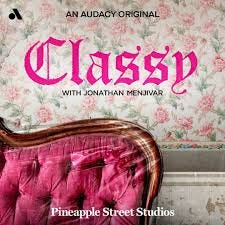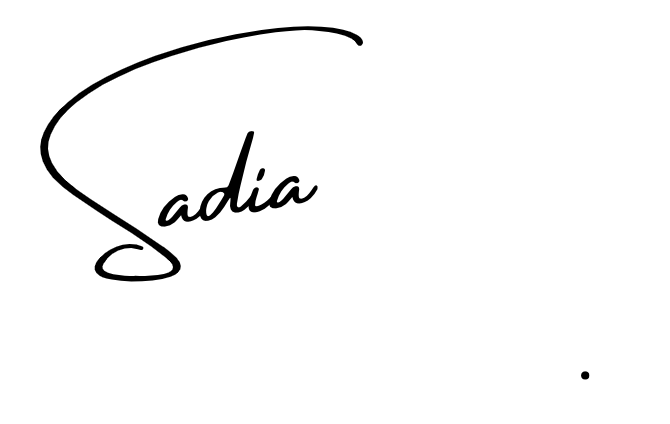#25 - My family thinks DEI is a scam. How do I convince them it has value?
Navigating tough DEI conversations? Helping you find the right words when your loved ones aren’t convinced.
I wasn’t particularly eager to write another newsletter about corporate DEI rollbacks, but I kept getting the same question in my Instagram DMs: How do I respond to criticism of DEI? So this month, I’m focusing on how to navigate those tough conversations—especially with family, friends, and, as is often the case, colleagues.
These discussions can be exhausting and emotionally charged, but while you may not change minds overnight, it’s crucial to have the facts on your side. That’s why I’ve grounded these responses in evidence rather than emotion.
I’ll be breaking down seven common criticisms of DEI and offering clear, fact-based ways to respond. Let’s dive in.
“I’m glad that DEI is out of the door. Now we can hire on skill and talent and not on race and gender!”
One of the biggest misconceptions about DEI is that it hands opportunities to unqualified people based on their identity. DEI is actually about ensuring everyone has a fair shot, free from bias and systemic barriers.
Ironically, when organisations claim to focus only on 'merit,' research shows they can unintentionally amplify bias. For example:
A study by MIT and Indiana University found that workplaces promoting 'meritocracy' often show greater favouritism towards men over equally performing women.
A study by Yale University demonstrated how unconscious bias influences hiring: resumes with traditionally white male names are rated more favourably than identical ones with female or BIPOC names.
These biases aren’t necessarily intentional, but they have real consequences, shutting out talented people based on stereotypes instead of ability. This is what DEI seeks to address.
“People are born equal and have the same life chances. Some are meant to be doctors, others forklift drivers. That’s just life.”
The idea that everyone starts with equal opportunities is comforting—but inaccurate.
If we look at North America specifically; Americans strongly believe in meritocracy, assuming success comes from intelligence and hard work alone. Yet, The Atlantic reports that the U.S.A. has less upward mobility than many industrialised nations, and economic inequality is only increasing.
Hard work matters, but so do factors like family wealth, inherited networks, and birthplace.
Meritocracy assumes a level playing field, but the truth is, we don’t all start from the same place. Recognising this isn’t about dismissing hard work—it’s about ensuring talent isn’t overlooked due to systemic barriers.
“Look at Obama! Look at Oprah! They’re Black. Nothing was holding them back!”
Pointing to Oprah or Obama as proof that racism is over ignores the systemic barriers still faced by many. Their success is the exception, not the rule.
Generational wealth gaps, rooted in enslavement and discrimination, continue to limit opportunities for marginalised groups. A 2018 University of Michigan study found that even with the same education and income, Black and white individuals are rewarded differently—showing how overemphasising individual responsibility can widen racial inequalities.
Oprah didn’t succeed because inequality doesn’t exist—she succeeded despite it. Her story is about resilience, not the absence of systemic injustice.
“I feel discriminated against as a white, straight male! Where are my rights!”
Equity isn’t about taking rights away—it’s about ensuring fairness for everyone, including men.
Inclusion isn’t a zero-sum game. Expanding opportunities doesn’t mean fewer for others; it means no one is unfairly left out. For example, initiatives supporting women in STEM don’t diminish opportunities for men—they correct systemic barriers, driving innovation for all.
Also, hiring based solely on identity (‘positive discrimination’) is illegal in the UK and USA. What’s protected is fairness—ensuring qualifications, not bias, drive decisions.
This isn’t about division—it’s about making sure everyone can thrive.
“We can’t lower the bar to let anyone in!”
No one is asking for unqualified hires. Its not about lowering the bar—it’s about widening the gate so more people have a fair shot at opportunities they’ve historically been excluded from. And let’s be clear: diverse workforces drive greater economic success. It’s not just a moral imperative—it’s a business one.
When underrepresented groups don’t even get the chance to compete, that’s gatekeeping. Right now, only 10 FTSE 100 companies have women CEOs, and 9 FTSE 350 companies still have all-male executive committees (down from 54 in 2017).
Do we really believe men are just better CEOs? Or is the system holding women back?
True meritocracy means a level playing field—where talent, not bias, determines success.
[Watching TV/online footage of a school where the students are primarily Black or Asian and asking] “Where are all the white kids!”
Are you saying representation is important? Because that’s exactly what DEI advocates for.
If seeing fewer white kids feels off to you, imagine how Black and Asian kids have felt for decades in spaces where they were barely represented.
“You’re trying to be fashionable by being woke! These people are diversity hires!
⚠️ Trigger warning for racist language and terminology ⚠️
We need to be careful about the way we approach these discussions. You might not be aware but those are loaded phrases that covertly express white supremacist ideals.
Instead of being labeled an “N-word lover” as they were in the 1960s, people are now called “woke.” Instead of a Black person being called “uppity” (someone seen as having ideas above their station), they’re dismissed as “a DEI hire.”
Racism hasn’t disappeared from our society—it has simply evolved, making it harder to call out.
These aren’t just harmless opinions—they reflect a belief that certain jobs belong to certain people, rather than being earned on a truly level playing field.
Navigating these discussions isn’t easy, and I hope the examples above give you more confidence in having them. But remember—these debates can often be distractions, designed to drain energy rather than drive progress. The real focus should be on those who genuinely want a fairer world and believe in equality. Imagine being against that?
February Recommendations:
📚 READ: I hope this finds you well by Natalie Sue. An admin worker accidentally gains access to her colleagues’ private emails and DMs and decides to use this intel to save her job.
If you enjoyed Eleanor Oliphant Is Completely Fine, I think you’ll adore the razor sharp wit of this debut by this Canadian author of Iranian and British descent.
You can purchase I hope this finds you well by Natalie Sue from all good bookshops or borrow it from your local library.
📻 LISTEN to Classy by Jonathan Menjivar. We (Brits especially) like to pretend that class doesn’t exist, but really most of the time we’re ignoring it because it makes us all really uncomfortable. This short podcast series explores the chasms that class throws up in our everyday lives from what we eat to what we wear and more.
You can listen to Classy on Apple Podcast and Spotify
📺 WATCH: Black Creative directed by Meena Ayittey explores what it’s like to be Black and work in the UK advertising industry.
This sensitive but punchy documentary hears from several Black creatives from the industry who weigh in on issues such as unconscious bias, tokenism, and microaggressions. This is a must watch for anyone that works in the creative industries, especially those in the UK.
You can watch Black Creatives on Amazon Prime now.
As ever, thank you as ever for reading this little newsletter. If you like what you’re reading, please consider sharing it with someone you think would appreciate it too. If you have the time to ‘like’ it by clicking the ♡ that would mean a lot to me, as it’ll help more people see it. Especially given that free newsletters are not promoted by Substack. How mean is that! 😇
Until next month, take care of yourselves 💛 and each other,









Thank you for this incredibly helpful newsletter / post. Catherine
You never cease to disappoint with your excellent analysis Sadia, thank you x